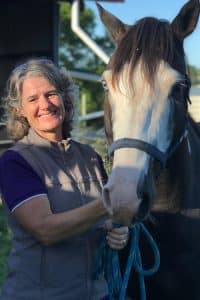
Becoming a veterinarian can be a very rewarding vocation, however it’s certainly not for everyone. Just like most professions, there are certain skills and attributes that a veterinarian should possess — some of which can be learnt, and some of which are innate.
Strong interpersonal and communication skills
Just like doctors, veterinarians spend a lot of their day talking to people. High-level communication skills are critical for translating complex diagnoses to clients, as well as conveying important information regarding proper care of their animals.
Empathy and compassion
When you’re working with animals, it’s important that you have compassion for your patients. Veterinarians should always have the best interest of the animals they are treating at heart, whether it’s a fish or a horse. A vet’s empathy and compassion also needs to extend to an animal’s owner; delivering difficult diagnoses, especially when euthanasia is a possible outcome, needs to be handled with sensitivity and care. As a vet, there will often be situations where an owner may not be able to provide the ideal course of treatment for their animal and commonly this is due finances. Being able to show compassion and find the best solution given the circumstances is often a key component of working as a vet.
Analytical skills
A large part of diagnosing an animal’s ailment is observation and evaluation; animals cannot tell you what is wrong, so veterinarians need to be able to observe and analyse to figure out the issue. Reading and interpreting results, such as blood tests, are also a routine part of the job. Scientific aptitude also comes into play. After all if you’re heading down the path of becoming a veterinarian you will need to complete a bachelor degree in veterinary science or an undergraduate science degree followed by a veterinary medicine doctorate.
Critical thinking and problem solving skills
Not every case you attend will be a textbook scenario; just like in human medicine, different patients may show different clinical symptoms for the one condition, and what works to treat one patient may not work to treat another. Thinking critically is very helpful when it comes to the diagnoses of different cases, while problem solving is often required to determine the best course of treatment — or combination of treatments — best suited in each scenario.
Animal handling ability
Veterinarians need to be able to effectively handle the animal they are treating, whether they are dogs and cats, wildlife or large animals such as horses. Therefore, you need to be comfortable around the animals you are treating, and also know how to react when things don’t go to plan. Being a competent handler in difficult situations not only reduces the risk of the animal coming to harm, but also reduces the risk of human injury as well. Of course, some animals require specialised handling skills more so than others, such as horses. Often weighing over 500kg, horses are flight animals and therefore being able to effectively contain and handle them during veterinary procedures is essential.
Fine motor skills
Whether it’s finding a vein for an intravenous injection or blood test, stitching up an incision following surgery, or applying lotion to an injured eye, a steady hand and good dexterity is an important part of being a vet. Being able to complete these sorts of tasks accurately is one thing — but often they also need to also be done quickly to ensure the animal doesn’t become distressed.
…. And a love of animals
Although it’s not necessarily a “skill”, as a veterinarian you really do need to harbour a deep love of animals. Animals may not be able to speak our language, but they can certainly understand a lot of what we convey in terms of body language, tone of voice and general demeanour. As a human patient, you want to be treated by a doctor who has genuine care for you as a patient, and animals are no different!
